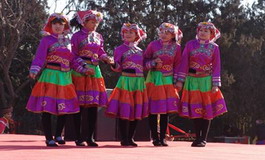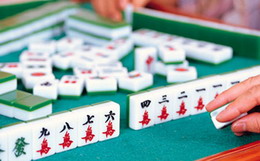
A personal story about Chinese culture
Growing up in a sprawling ghetto side of Lagos in the early eighties marked the beginning of my experience with Chinese culture. At that time the cinema sector in Nigeria was at its highest ebb. I recall with nostalgia how I learnt invaluable lessons about Chinese culture from watching Chinese movies. Then Chinese movies occupied the box office showcase of the big cinema screens in Lagos. During festive periods, people would usually flock to cinema houses to watch Chinese films. I would stay in the long queue waiting anxiously for my turn to buy a ticket. The cinema halls would usually be jam-packed as the projector reel out the highly enlightening and evocative Chinese movies featuring acts like Bruce Lee, Jackie Chan, Jet Li and a host of others. Both Jackie Chan and Jet Li would later break into the somewhat impenetrable Hollywood movie industry where they soon attained big success statuses with breath-catching box office hits in America.
As a film enthusiast, my instincts spurred me to search even deeper. It soon became apparently clear to me that European and American filmmakers (who were the actual progenitors of motion picture) had ethnographically and surreptitiously portrayed China in a stereotypical negative light in their movies. Chinese society, according to their portrayal, was a classical example of exoticism, fetish and feminine sexual fantasies in the early days when the film industry was still evolving and revolutionizing. In Cinema China 07 (A Brief History of Chinese Film), the observation was made about how China was portrayed in Hollywood films as a 'fantasy', 'a place to have sex' and 'to day dream'.
But to many discerning mind, this was a conjectured depiction that lacked basis and balance.
Chinese cinematographers and filmmakers would later attempt to correct the anomaly. Movies by indigenous Chinese producers were churned out to counter the wrong imaging of China. This was in the first (1933-37) and the second (1942-49) golden ages. The era later spiraled to the point when the Hong Kong and Shanghai film companies started to explore the huge potentialities in commercial world cinematography. This was the era marked by the shooting of kinetically charged movies with a gravity that defied choreographic limitations.
It was in this period that the Shaw Brothers' once armed Swordsman (1968) which showcased the masculinity of Hong Kong (as against the prejudicial militating western-type depiction of China as a decadent abyss of feminist sensuality and pervasive sex) metamorphosed into the supercharged myth-hero character that the protagonist actor Bruce Lee would later become. The chartbuster movie 'Big Boss' became an instant world hit, becoming the first in the series of films that would establish the enduring legacies of Bruce Lee as an unforgettable Chinese movie hero-legend.
Watching Chinese movies in my childhood days acquainted and acculturated me into the ideal behavioral pattern in Chinese society. Apart from the ethnographic and visual brilliance of the movies and the flowing traditional Chinese dress modes and eye-catching acrobatic and martial art stunts, the invaluable lesson that I garnered from these movies (which drew heavily on Buddhist and Taoist traditions) was that no matter how hard or how long evil prevailed over good, good would SURELY and INEVITABLY overcome and triumph over evil. Evil would eventually be vanquished in the final analysis. Especially with the epic (historical) Chinese films, I had gained a deepened understanding of the piety, devotion and non materialist imbuement of the Buddhist adherers and of their service to humanity.
Concerning the triumph of good over evil, the 1973 culturally preservative movie 'Enter the Dragon' directed by Robert Clouse in which Bruce Lee, John Saxon, Jim Kelly, Ahna Capri, Shil Kien and others starred, amply demonstrated this. In the movie, Lee (a Shaolin martial artist from Hong Kong with an in-depth philosophical insight) will assist a man called Braithwaite from the British Intelligence service to take on and squash the otherwise invincible drug and prostitution racket run on an Island by the mysterious Mr. Han in a bid to rid the Hong Kong society of unscrupulous elements. Although Lee would first participate in the triennial martial arts competition organized by Hans, Lee defeats all the competitors pitted against him through his masterful use of great kung fu skills and tactics. After which the overarching need for him to take on the bad guys at great personal peril begins. In the end Lee would travail over the antagonists.
 |
 |


